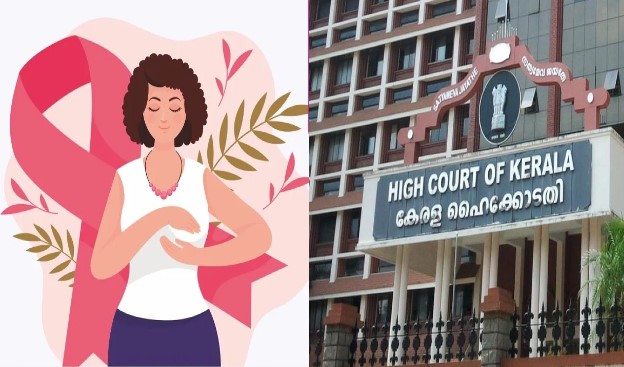
The Kerala High Court has recently directed the Central Government to collect data from the Indian Council of Medical Research (ICMR) about persons suffering from different types of breast cancer.
Justice Shaji P Chaly passed an order in regard to a plea that sought, among other things, compulsory licensing of the life-saving breast cancer drug, Ribociclib.
Even though the petitioner suffered from breast cancer and later succumbed to her disease during the pendency of the petition, the Court took cognizance of the larger issue of the high cost of the drug.
Later the Court appointed the petitioner’s counsel, advocate Maitreyi Hegde as amicus curiea in the matter.
It was based on her request for the data that the court passed the present interim order.
The interim order stated that “Since it is an innocuous prayer sought for by the Amicus Curiae in the larger public interest, there will be a direction to the Ministry of Health and Family Welfare to collect the details from the sixth respondent and submit a report before this Court within one month.”
The petitioner, in this case, had been diagnosed with HER2- Negative Metastatic Breast Cancer and was undergoing targeted therapy when she approached the Court raising the issue of the price of a life-saving breast cancer drug, Ribocicilib treatment costs around ₹58,140.
Ribociclib treatment presently enjoys a patent monopoly and its manufacturers are prevented from producing the medicine without the consent of the patent holder, Novartis.
Previously, it was pointed out that the government can invoke Section 92 of the Patents Act, 1970 which provides for a compulsory license, and Section 100 which empowers the government to requisition life-saving medicines in cases of extreme necessity.
Therefore, the inaction by the government in providing access to medication infringes upon the right to health guaranteed under Article 21 of the Constitution of India and violates the directive principles of state policy that impose an obligation on the Government to ensure public health.




